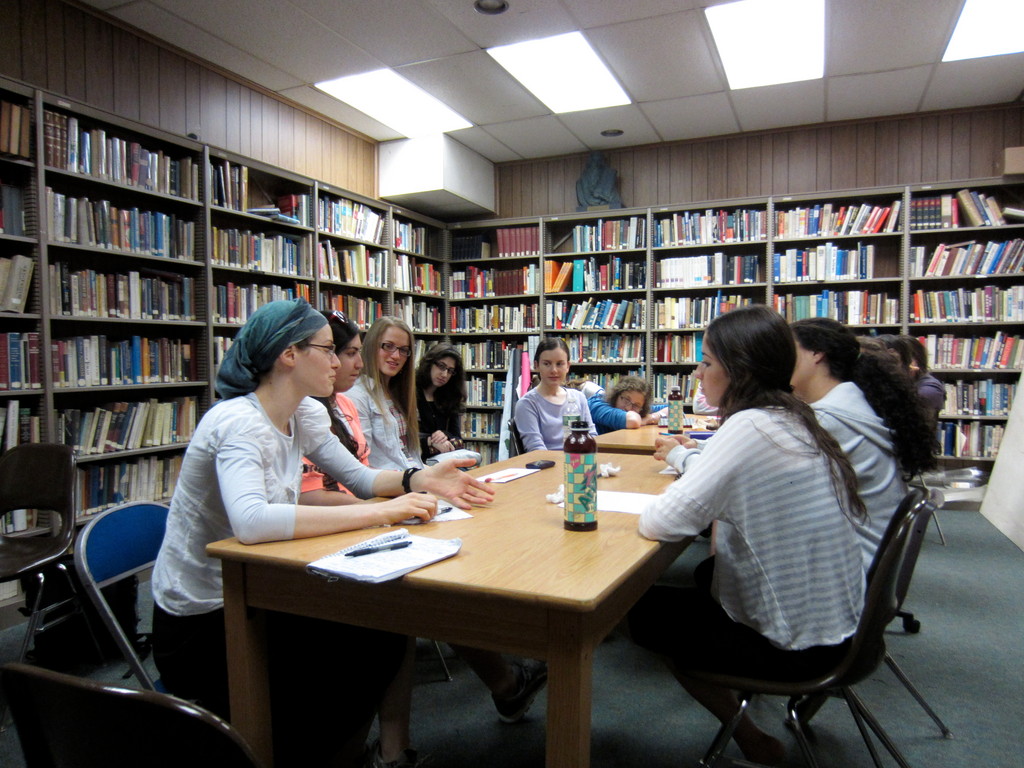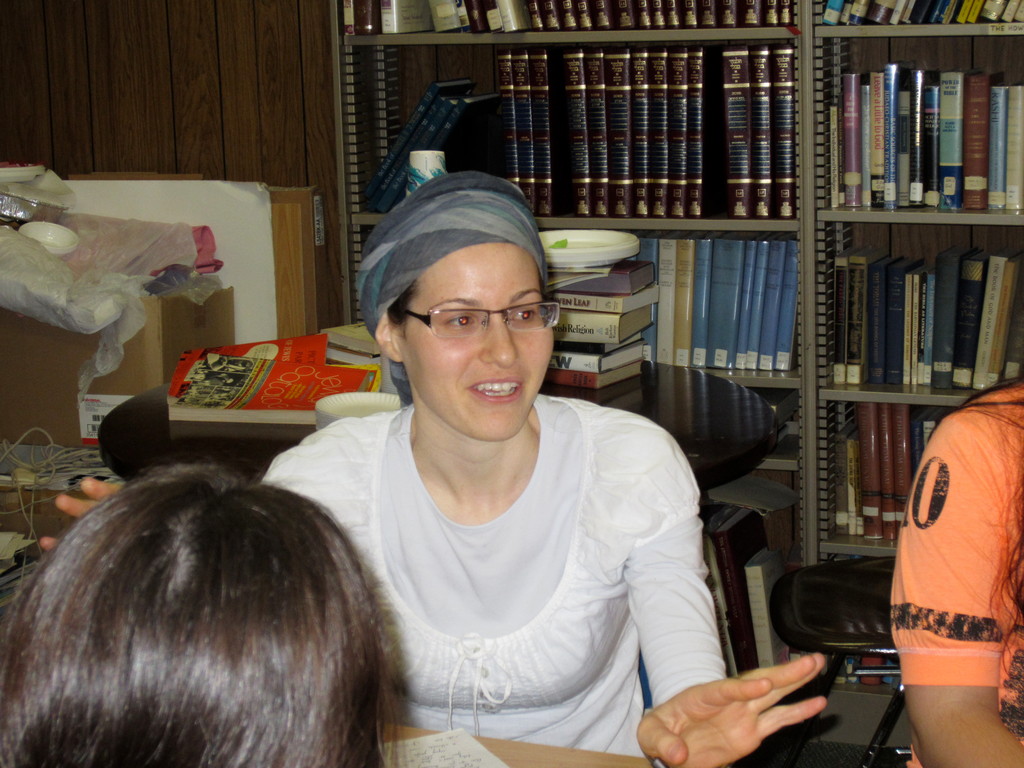Midreshet Shalhevet’s mentoring program encourages asking questions
As part of Midreshet Shalhevet’s mentoring program, and as an extension of their course Nashim b’Halacha (Women in Jewish Law), the seniors met with Dr. Penina Dienstag, a resident at Downstate Medical Center and a yoetzet halacha for a shiur, discussion and question and answer session last Friday.
Dienstag began by addressing the question of women’s “place.” She referred to Parshat Shmini, summarizing an idea from Rabbi Baruch Simon, how the eighth day of putting up the Mishkan was a tremendous simcha and yet Aharon’s two sons died, so there were mixed feelings. There were many firsts that day and the language is similar to the story of creation. She noted that one feels joy, simcha, when fulfilling your place, when you are comfortable with what you’re doing. The jobs and parts of the mishkan mirrored creation where G-d created everything with an individual purpose.
Both Rav Soloveitchik and Rav Kook pointed out that just as Hashem is yichidi, unique and the only one in the world, so each person is yachid, unique, she explained. We are purposeless before creation. Hashem wants us to fulfill our role, we have the strength of the command of Hashem, our place, our job.
Nishmat Founder and Dean, Rabbanit Chana Henkin began the yoetzet program, not as a challenge to authority, said Dienstag, but to fill a need. She noticed masorati women who followed taharat hamishpacha (the laws of intimate personal and family matters, fertility and women’s health), driving to mikveh on Shabbat, realizing that they had questions but would not approach a rabbi for answers. The Keren Ariel Women’s Halachic Institue of Nishmat was founded in 1997 to train Yoatzot Halacha or women halachic consultants. The program, directed by Rabbi Yaacov Varhaftig, Dean, and Rabbi Yehuda Herzl Henkin, requires two years, over 1000 hours, of intensive study with rabbinic authorities in taharat hamishpacha. The women chosen to enter the Institute are married, possess extensive Torah scholarship, leadership ability and are dati (Orthodox religious) and also study medical texts, infertility, psychology, physiology, women’s health, gynecology, family dynamics and sexuality.

 53.0°,
Light Drizzle Fog
53.0°,
Light Drizzle Fog 







